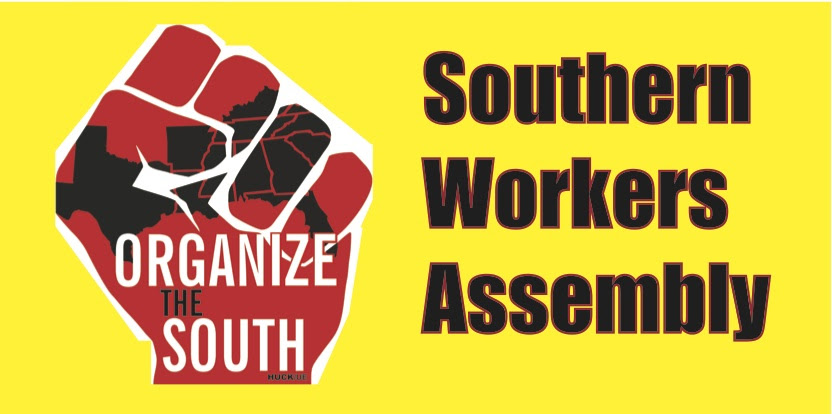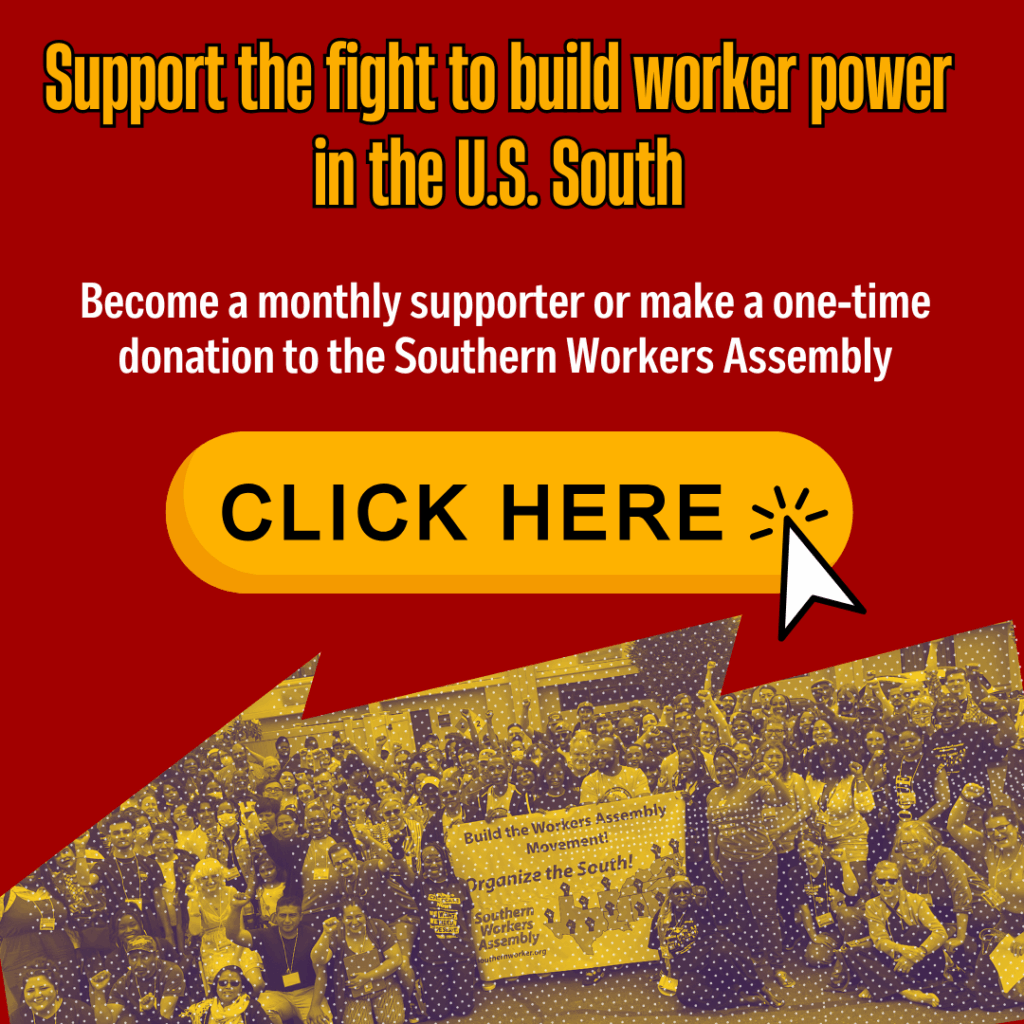In the current right wing driven political and economic climate, not only have workers and trade union rights been under attack, but basic working conditions for all sectors have deteriorated – significantly in many instances.
Wage structures have been lowered while job classifications are expanded and blurred. Unfair tier wage structures and benefits have been introduced into collective bargaining agreements. In other words, workers are doing more work for less pay.
Under-staffing in the public sector abounds while services are cut and THE CORPORATE/WEALTHY 1% PAY LESS AND 99% PAY MORE IN TAXES costs to the public increased. Indeed, under-staffing endangers the lives and health of workers providing public goods and services.
Historically, in the Southeast region, Taft-Hartley (right-to-work) laws have undermined the strength, consolidation, and growth of trade unions while the lack of a region-wide or state by state collective bargaining infrastructure in the public sector and/or laws that prohibit public sector collective bargaining in states such as North Carolina and Virginia, severely limit the power of workers to fight oppressive working conditions.
While the struggle to overturn Taft-Hartley and to repeal all bans on public sector collective bargaining in the Southeast are fundamental demands that must be raised and fought for by the Southern labor movement, workers must also fight to establish basic standards that provide a floor under which no worker should have to labor.
The fight for “Worker Bill of Rights” legislation at the state level and city ordinances at the municipal level can provide those basic standards for workers in all sectors,including for workers trying to organize,as we fight for fundamental, structural change.
These “Worker Bill of Rights” Standards for workers must be grounded in their day to day working conditions and those real, objective conditions that impact on workers ability to protect their health and safety; adequately provide for their families; and improve their ability to build power and organization on the job.
In a society and economy that requires workers to have jobs to provide the basic necessities of life for themselves and families, worker rights become human rights.
Please see the Workers Bill of Rights Campaign documents from the struggles of state and municipal workers in North Carolina as examples of the kind of “Worker’s Bill of Rights” that workers in various sectors can develop from their concrete struggles in each state and local area. We invite worker organizations and trade unions to submit your examples of “Worker Bill of Rights” documents and campaigns that you have been waging. One such document from the United Campus Workers – Communication Workers of America is also included in this section. Others can and will be added for educational purposes as you provide them.


